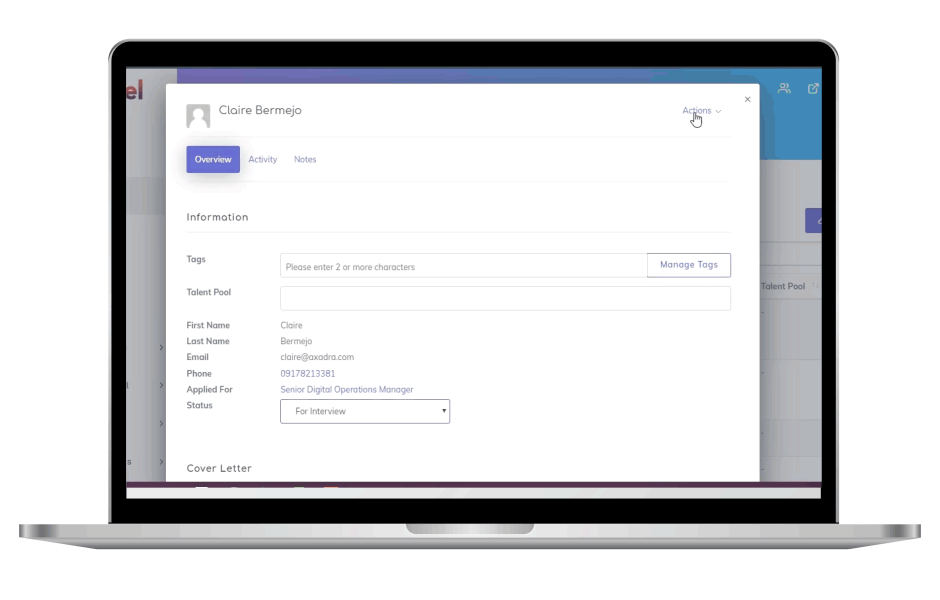In today’s competitive job market, attracting and retaining top talent is crucial for businesses looking to thrive. Job seekers are constantly on the lookout for new opportunities that align with their career goals and personal aspirations. While factors such as more challenges, work-life balance, and flexibility play a significant role in their decision-making process, salary remains a primary consideration. As a recruiter, you might be asking yourself “Should the salary range be in the job description?” Let’s discuss the answer to this question in this article.
Why Candidates Are Looking for New Opportunities
Before diving into the benefits and drawbacks of including salary information on job postings, it’s essential to understand what candidates want from employers. Here are some of them:
- More Challenge: Candidates often seek roles that offer greater challenges, allowing them to develop their skills and reach their full potential. This might involve working on more complex projects or at larger organizations with greater resources. Getting to work on more challenging tasks also provides individuals with the chance to collaborate with more experienced professionals and learn from them.
- Work-Life Balance: Achieving a healthy work-life balance is becoming increasingly important to job seekers. This is because many individuals are looking to achieve professional success while still having time for family and leisure activities. A healthy work-life balance also benefits the individual’s physical and mental health, leading to greater job satisfaction.
- More Flexibility: Flexibility in working arrangements, such as remote work options or flexible hours, has become a significant consideration for job seekers. In today’s digital world, many individuals are turning to more flexible arrangements that allow them to work around their existing commitments and lifestyle.
- Higher Pay: It’s no surprise that a higher salary is an attractive factor for candidates. Compensation is often seen as an indicator of the value placed on an employee’s skills and contributions. Higher pay can also provide financial security, opportunities for personal growth, and a better quality of life.
Pros of Including Salary on Job Descriptions
Including the salary on your job posting can provide you with various benefits, including the following:
Following Trends in the Workplace
Companies that include salary information in job descriptions align with the evolving trends in the modern workplace. Transparent communication about compensation fosters trust and demonstrates an employer’s commitment to fairness.
It establishes a foundation of open dialogue between employers and candidates. This leads to a positive employer brand and attracts candidates who appreciate transparency.
Pay Equity
Including salary details can help combat pay disparities, promoting pay equity among employees. By openly stating the compensation range, employers reduce the potential for discrimination based on gender, race, or other factors.
This transparency encourages fair compensation practices and ensures that candidates have a clear understanding of what they can expect in terms of remuneration. Existing employees also benefit, as they can be confident that any future candidate will receive the same pay rate.
Healthy Work Culture
Salary transparency cultivates a healthy work culture where employees feel valued and appreciated. When salary information is available, employees can have informed discussions about compensation.
They can better understand how their salary aligns with industry standards, their experience, and their responsibilities. This transparency can lead to increased job satisfaction, enhanced trust in the organization, and decreased resentment among employees.
Candidates can also use salary information to make more informed decisions about job offers. Being able to compare different organizations and positions helps them decide which job is the right fit for them.
Cons of Including Salary on Job Descriptions
Although including salary on job postings can benefit the recruiter and candidate, it can still have certain drawbacks.
Disregard for Other Incentives
When salary is the primary focus, candidates may overlook other valuable incentives, such as healthcare benefits, retirement plans, or opportunities for professional development. This narrow focus can result in candidates not fully considering the overall compensation package.
Small businesses will generally be affected by this disadvantage. Because they cannot compete with the salaries of larger organizations, they may struggle to attract top talent if the salary is the primary factor for consideration.
Attracting Under-Qualified Applicants
Listing the salary range can attract applicants who are solely motivated by money, rather than genuine interest in the role or company. This may lead to an influx of under-qualified candidates, making the selection process more challenging and time-consuming.
Employers should clearly define the required qualifications and emphasize the importance of skills and experience beyond just the salary. Investing in recruitment marketing automation software can also help expedite the recruitment process and weed out under-qualified applicants early.
Out-Offered by Competition
When salary information is publicly available, it gives competitors an advantage in attracting and hiring independent contractors and talents. Companies with higher compensation packages can poach qualified candidates from organizations that may not be able to match their offers, creating recruitment challenges for companies with limited budgets.
States That Require Salary on Job Postings
While there is no federal law mandating the inclusion of salary information in job postings, several U.S. states have implemented their own regulations. The following states require employers to disclose salary or wage information in job advertisements:
- California
- Colorado
- Connecticut
- Delaware
- Hawaii
- Illinois
- Maine
- Maryland
- Massachusetts
- Michigan
- New Jersey
- New York
- Oregon
- Pennsylvania
- Rhode Island
- Vermont
- Washington
Employers operating in these states must adhere to the specific guidelines and disclose salary ranges or other relevant compensation information in their job postings.
Including Salary on Job Descriptions
In the competitive landscape of job recruitment, salary remains a crucial factor for job seekers considering new opportunities. By including salary information in job descriptions, companies can address candidates’ expectations and align with evolving workplace trends. Transparent communication about compensation not only fosters trust and promotes pay equity but also contributes to a healthy work culture.
However, employers must carefully weigh the pros and cons of including salary information in job postings to make informed decisions that benefit both their organization and prospective employees. By striking a balance between transparency and comprehensive package offerings, employers can attract top talent and build a strong and motivated workforce.















